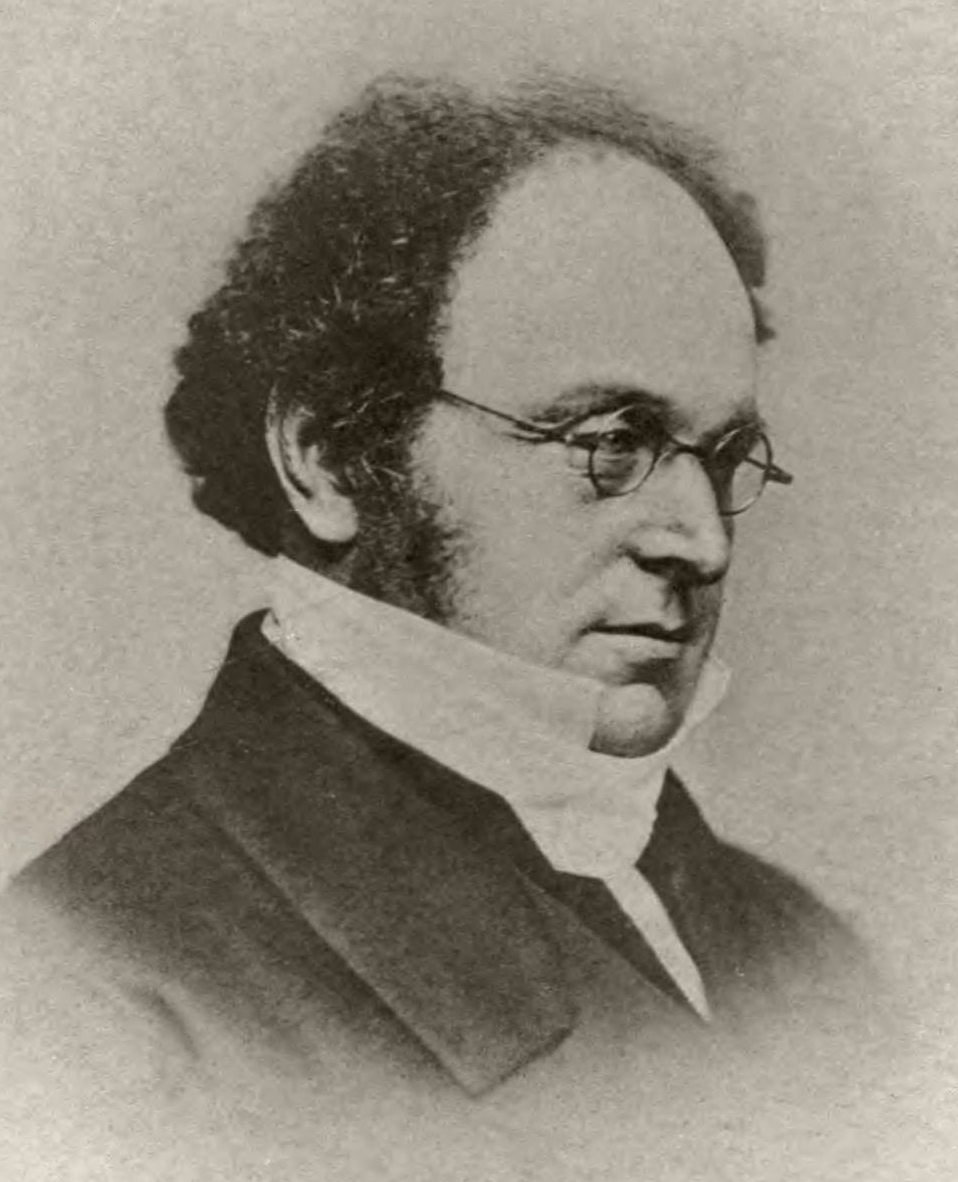“The moving power of mathematical invention is not reasoning, but imagination.”
Quoted in Robert Perceval Graves, The Life of Sir William Rowan Hamilton, Vol. 3 (1889), p. 219.
Augustus De Morgan foi um matemático e lógico britânico. Formulou as Leis de De Morgan e foi o primeiro a introduzir o termo e tornar rigorosa a ideia da indução matemática.
Augustus De Morgan foi educado no Trinity College, em Cambridge, e em 1828 tornou-se professor de matemática na então recém-criada universidade, em Londres, cargo que ocupou até 1866, com exceção de um período de cinco anos . Foi o primeiro presidente da London Mathematical Society, fundada em 1866.
Como professor não tinha rivais e nenhum tópico era insignificante demais para sua cuidadosa atenção. Um de seus primeiros trabalhos, Elementos de aritmética, de 1831, distingui-se pelo tratamento filosófico das ideias de número e magnitude. Além disso, contribuiu para o simbolismo matemático propondo o uso do solidus para a impressão das frações.
Sua maior contribuição para o conhecimento foi como reformador da lógica. Efetivamente, o renascimento dos estudos de lógica que começaram na primeira metade do século XIX deveu-se quase que inteiramente aos trabalhos de De Morgan e Boole, outro matemático inglês.
As realizações mais importantes de De Morgan foram o lançamento das fundações de relações e a preparação do caminho para o nascimento da lógica simbólica .
Wikipedia

“The moving power of mathematical invention is not reasoning, but imagination.”
Quoted in Robert Perceval Graves, The Life of Sir William Rowan Hamilton, Vol. 3 (1889), p. 219.
Advertisement, p.4
The Differential and Integral Calculus (1836)
“The work now before the reader is the most extensive which our language contains on the subject.”
Preface, p. iii
The Differential and Integral Calculus (1836)
The Differential and Integral Calculus (1836)
Fonte: On the Study and Difficulties of Mathematics (1831), Ch. I.
Introductory p.5
A Budget of Paradoxes (1872)
“I did not hear what you said, but I absolutely disagree with you.”
Attributed to Augustus De Morgan in: August Stern (1994). The Quantum Brain: Theory and Implications. North-Holland/Elsevier. p. 7
I use the word in the old sense: ...something which is apart from general opinion, either in subject-matter, method, or conclusion. ...Thus in the sixteenth century many spoke of the earth's motion as the paradox of Copernicus, who held the ingenuity of that theory in very high esteem, and some, I think, who even inclined towards it. In the seventeenth century, the depravation of meaning took place... Phillips says paradox is "a thing which seemeth strange"—here is the old meaning...—"and absurd, and is contrary to common opinion," which is an addition due to his own time.
A Budget of Paradoxes (1872)
It is also frequently said, when a quantity diminishes without limit, that it has nothing, zero or 0, for its limit: and that when it increases without limit it has infinity or ∞ or 1⁄0 for its limit.
The Differential and Integral Calculus (1836)
This was the method followed by Euclid, who, fortunately for us, never dreamed of a geometry of triangles, as distinguished from a geometry of circles, or a separate application of the arithmetics of addition and subtraction; but made one help out the other as he best could.
The Differential and Integral Calculus (1836)
The portion of the Integral Calculus, which properly belongs to any given portion of the Differential Calculus increases its power a hundred-fold...
The Differential and Integral Calculus (1836)